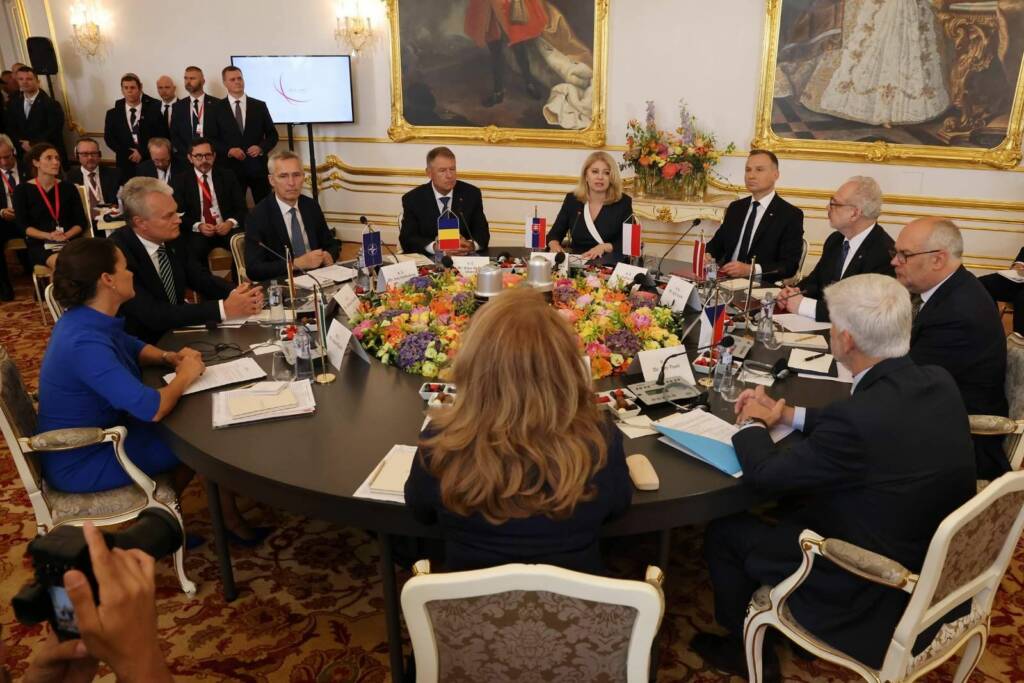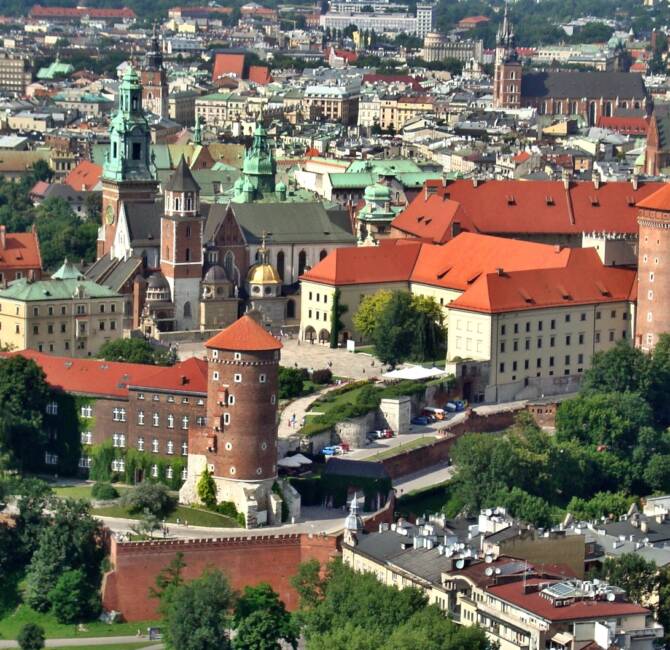Slovakia – The presidents of the Bucharest Nine – Bulgaria, Czechia, Estonia, Hungary, Latvia, Lithuania, Poland, Romania, and Slovakia – met at Bratislava Castle on Tuesday, June 6 at the invitation of Slovak President Zuzana Čaputová alongside her counterparts from Poland and Romania, Andrzej Duda and Klaus Iohannis. The discussions, which were also attended by NATO Secretary General Jens Stoltenberg, once again focused on the war in Ukraine, ahead of the forthcoming Atlantic Alliance summit in Vilnius, Lithuania on July 11 and 12.
At the start of the summit, Zuzana Čaputová said that “as countries on the Alliance’s eastern border, we have a lot in common. It is not only about a location on the map or a historical experience behind the Iron Curtain. We share many perspectives on contemporary political, security, and defence issues. The aim of the B9 summit in Bratislava is to agree on a common course of action to promote the priorities shared by our countries as effectively as possible at the next North Atlantic Alliance summit in Vilnius.”
She further declared that “the number one priority for our citizens, and the main topic of the meeting of the Bucharest Nine’s heads of state, is security in Europe.
The biggest threat hanging over Europe today is Russian aggression against our eastern neighbours, as confirmed by the latest news from Ukraine. The destruction of a major dam, the endangerment of tens of thousands of human lives, and the fomenting of an enormous ecological disaster are all examples of the barbarity suffered by the Ukrainian people.
This confirms our responsibility to take all necessary measures to ensure that our citizens and our sovereignty continue to be protected alongside that of our allies. We have agreed that the best insurance for our security is an effective defence that is capable of deterring potential aggression at any time and by anyone.

For Slovakia, the priority of the Vilnius Summit is to further strengthen our defence, and in particular to create a stable mechanism to ensure the presence and operation of air defence in our region.
I am delighted that President Volodymyr Zelensky has joined us today for part of our discussions, and has informed us about what is happening in his country. My partners and I have agreed that continued assistance to Ukraine would contribute to peace – without Russian troops on Ukrainian territory, without the threat of renewed hostilities by Russia, within internationally recognized borders, and with a sovereign Ukraine.
The fact that we are also talking today about the possibility of Ukraine joining the Alliance in the future is a consequence of the Russian Federation’s aggressive power politics, which does not respect the sovereignty of its neighbours and has repeatedly shown that it does not respect their borders, either…”
Polish President Andrzej Duda declared in the same spirit: “We must constantly reinforce our defence potential, modernise our armed forces, implement the decisions of previous NATO summits, and strive to create not only a forward presence, but also a forward defence on the eastern flank.
We must also support Ukraine consistently, as a Russian victory would pose a threat to our security.”
For his part, Romanian President Klaus Iohannis continued in the same fashion: “B9 coordination is essential ahead of the NATO summit in Vilnius. We, the NATO allies in this part of Europe, are on the front line in countering the disastrous consequences of Russia’s war against Ukraine. That is why we need a common vision to identify ways of strengthening the eastern flank’s security in a united and coherent way, from the Black Sea to the Baltic Sea.”
For the new Czech President, Petr Pavel, a former chairman of the NATO Military Committee, the aim is to “strengthen the defence of the alliance’s eastern wing […] The message to Russia must be clear: we are united, and our defence stands strong, resilient, and durable.”
Only Hungarian President Katalin Novák put the emphasis elsewhere when she recalled that, for Budapest,
“peace is the most important objective in Ukraine”.
For Novák, “the West will do the right thing only if it makes realistic promises to Ukraine that it can keep”. And she further insisted, in a reference to the Hungarian minority in Ukraine: “The rights of national minorities must be respected.”
However, in their joint statement at the end of the B9 summit, the region’s leaders confirmed their unwavering support for Ukraine:
“We will continue helping Ukraine to reach a peaceful solution on its own terms for as long as necessary, including through military, financial, and humanitarian support.”
The B9 is a regional organisation created in 2015 on the initiative of the Romanian and Polish presidents, Klaus Iohannis and Andrzej Duda. It brings together NATO’s Central and Eastern European members, on the organisation’s eastern flank. Poland and Romania are the two major players among them. Both countries have grown much closer since the start of Russia’s “special military operation” in Ukraine.
The previous B9 meeting took place in Warsaw at the end of February.




